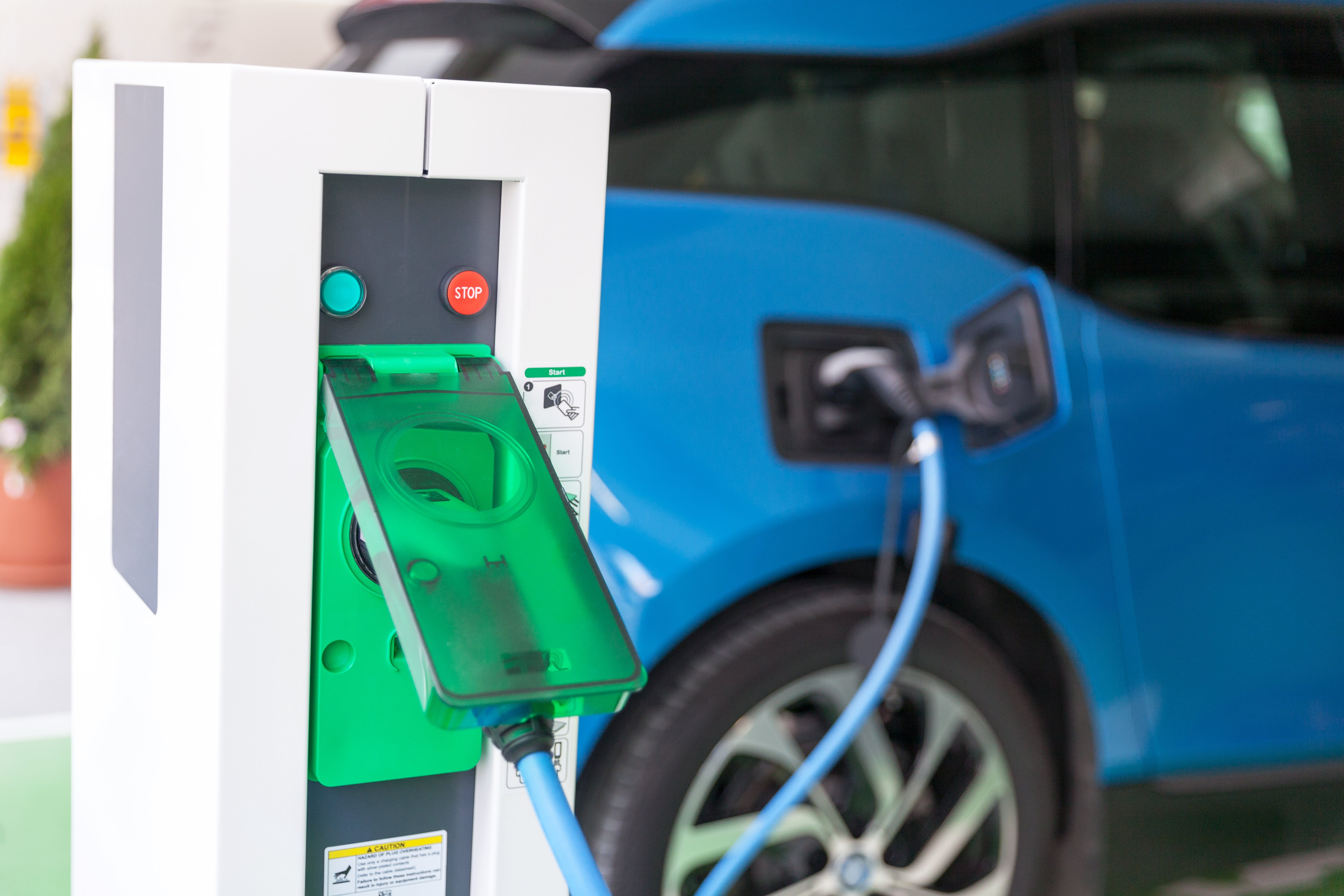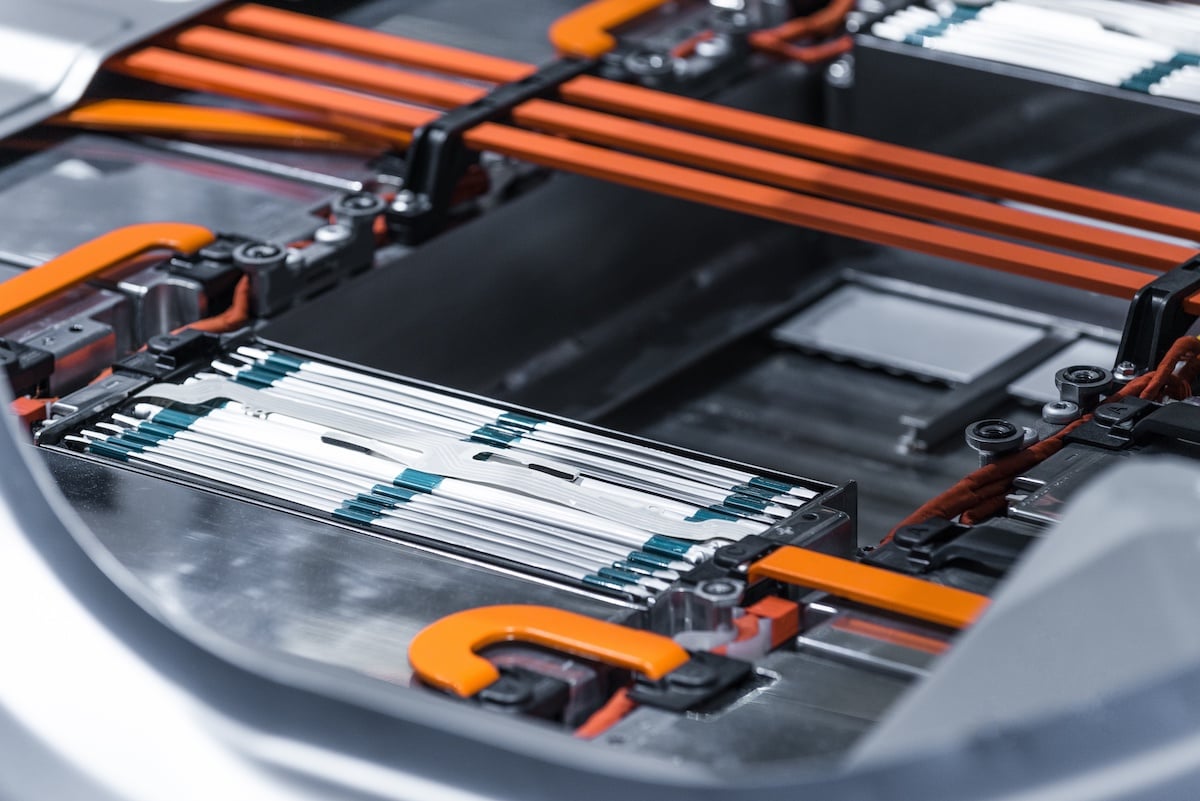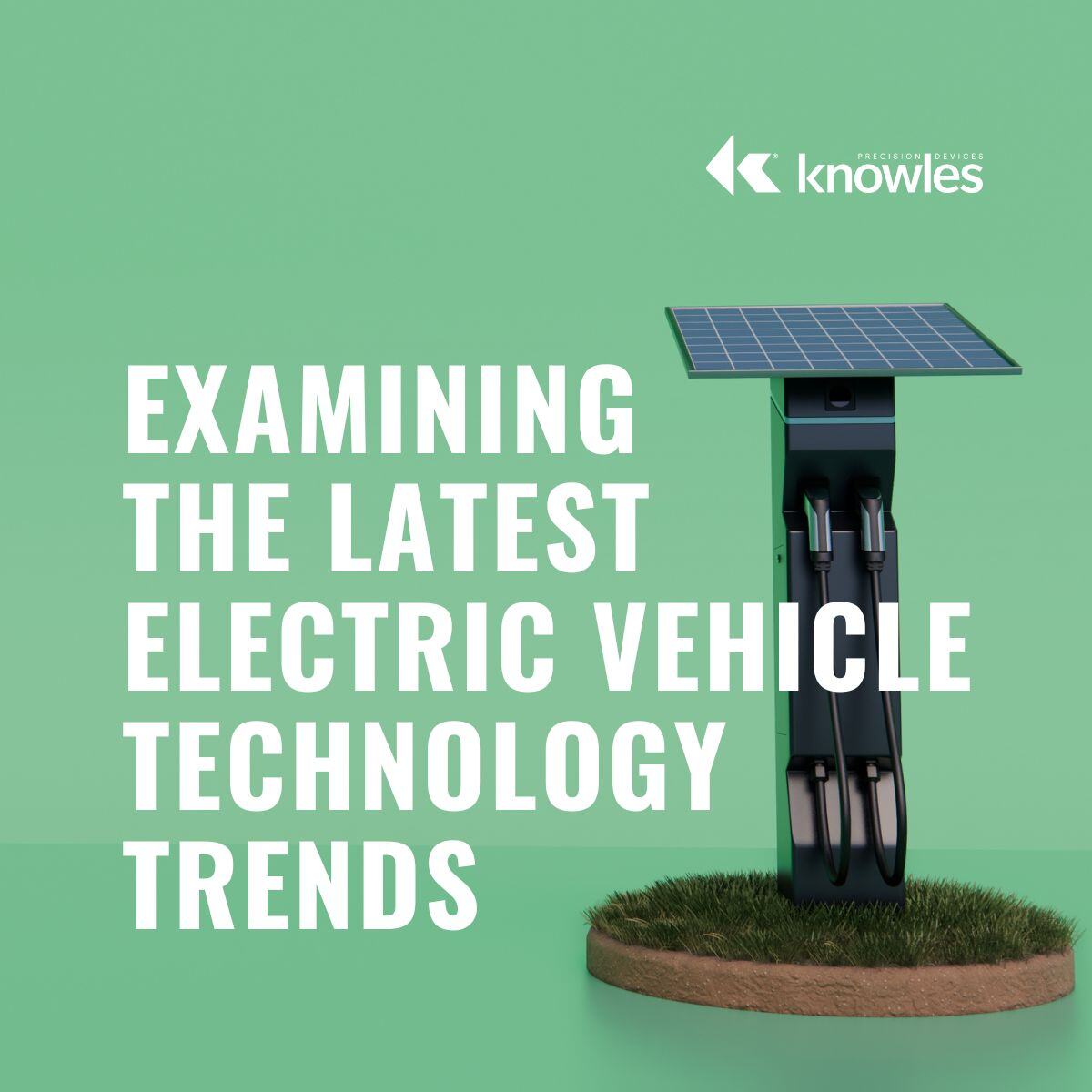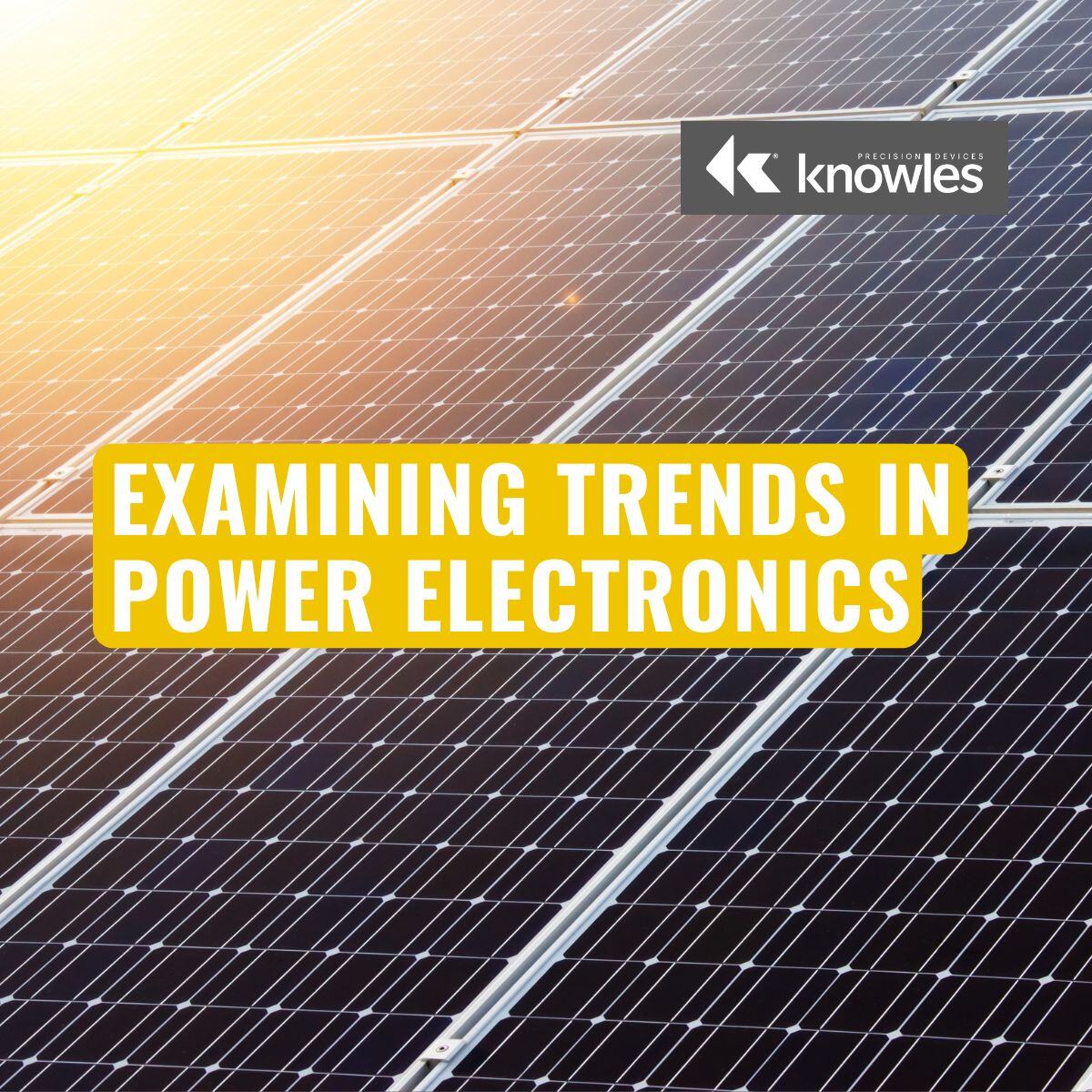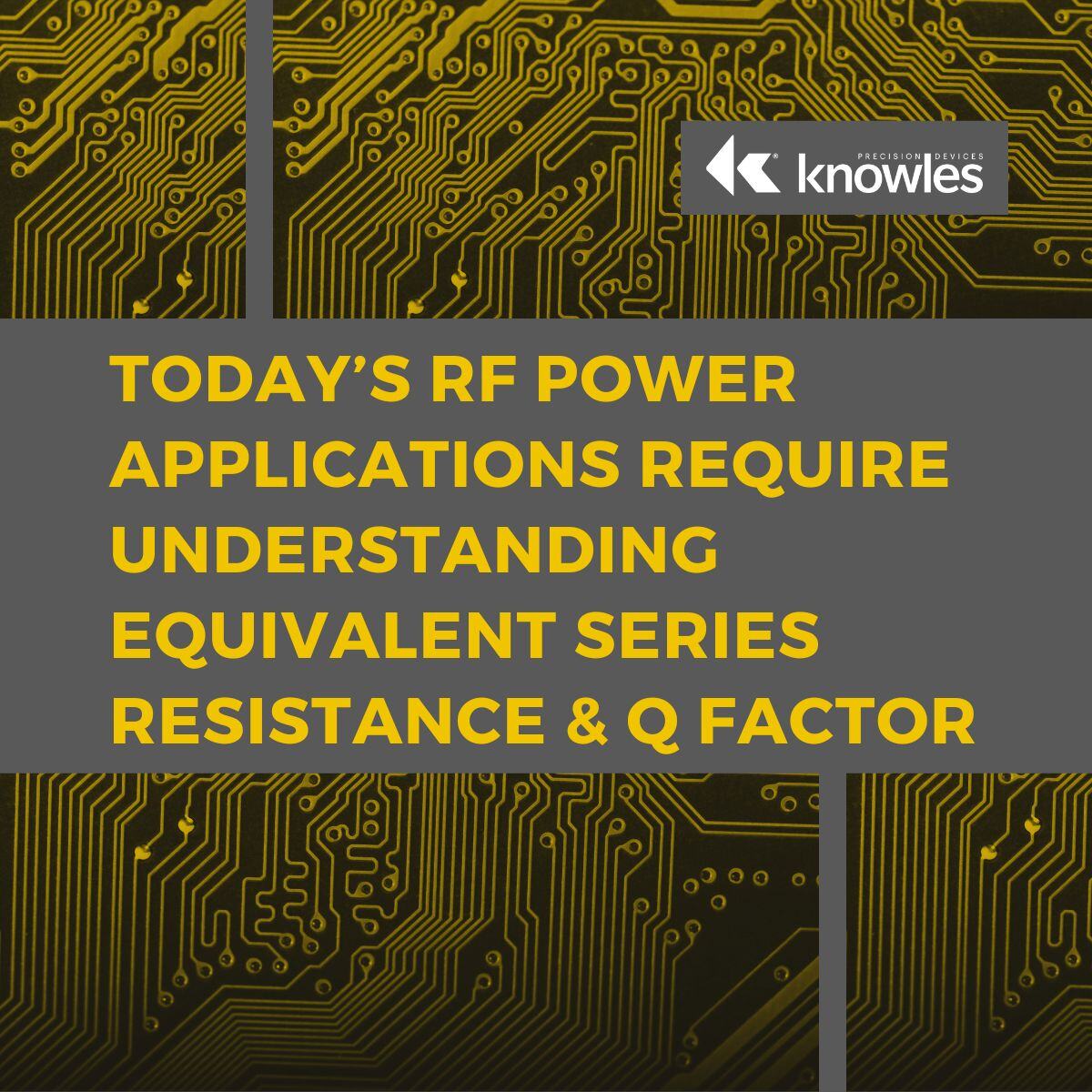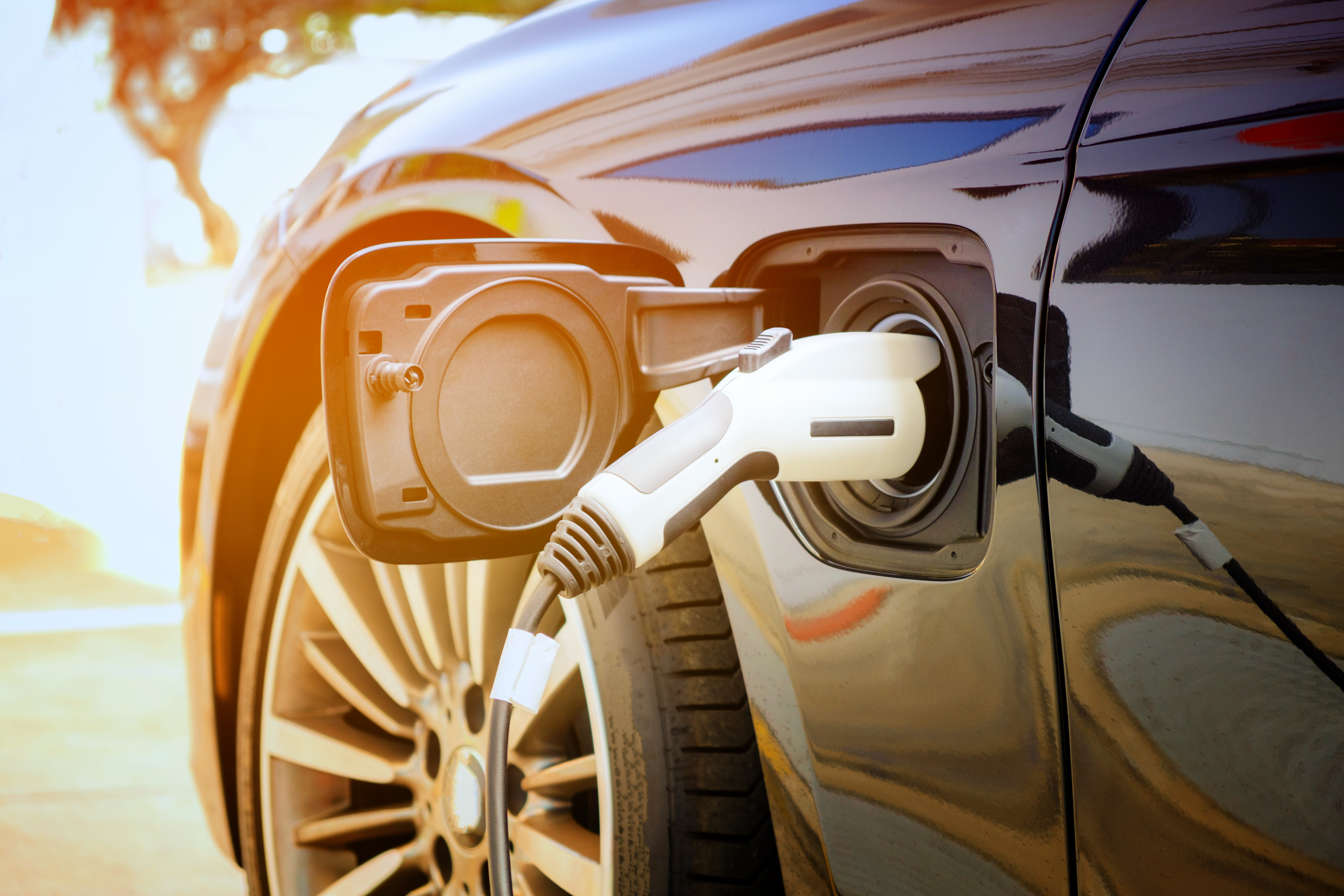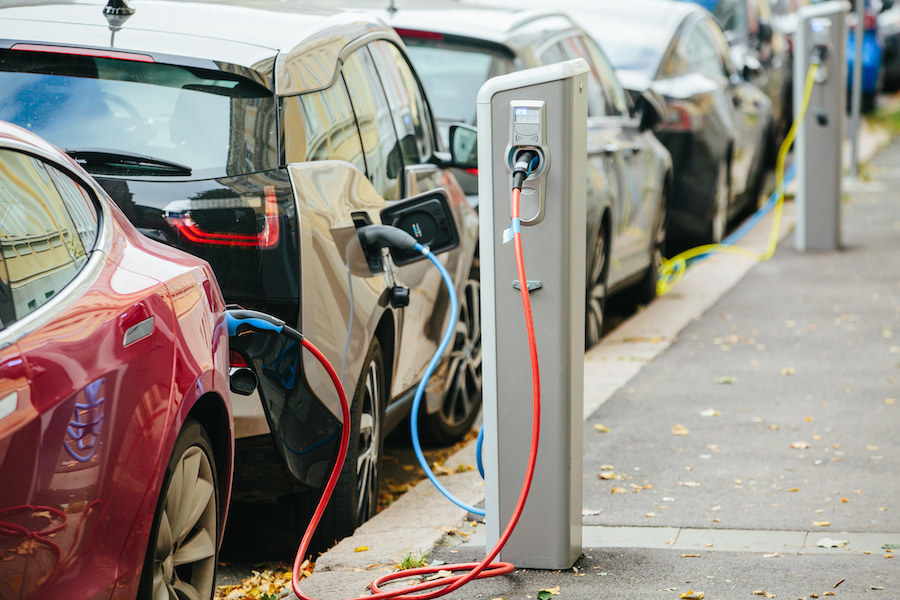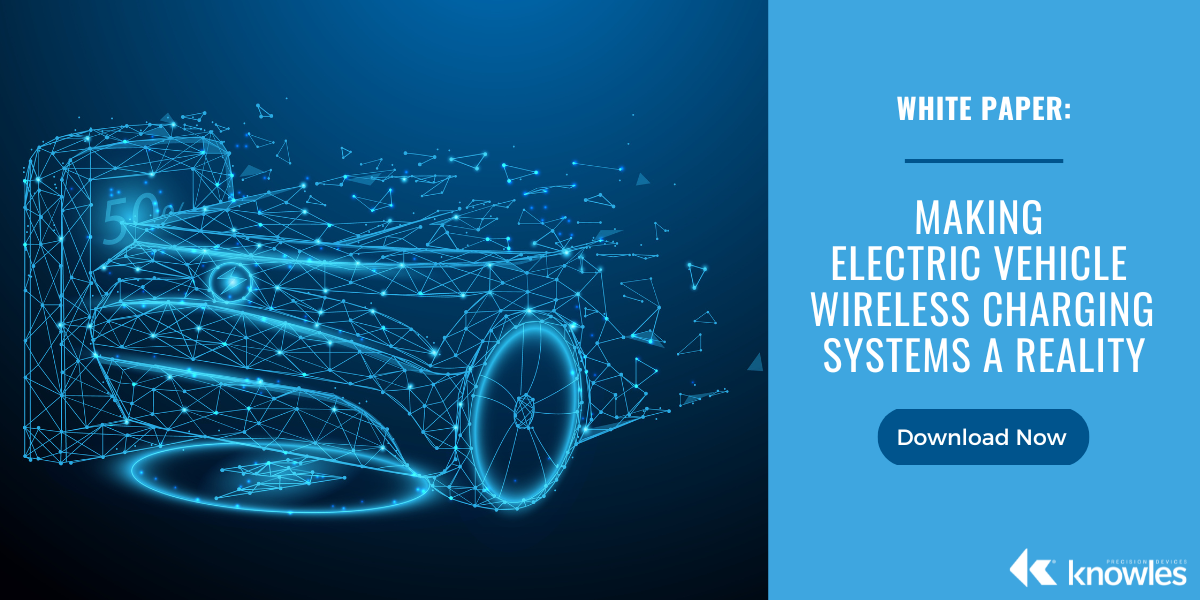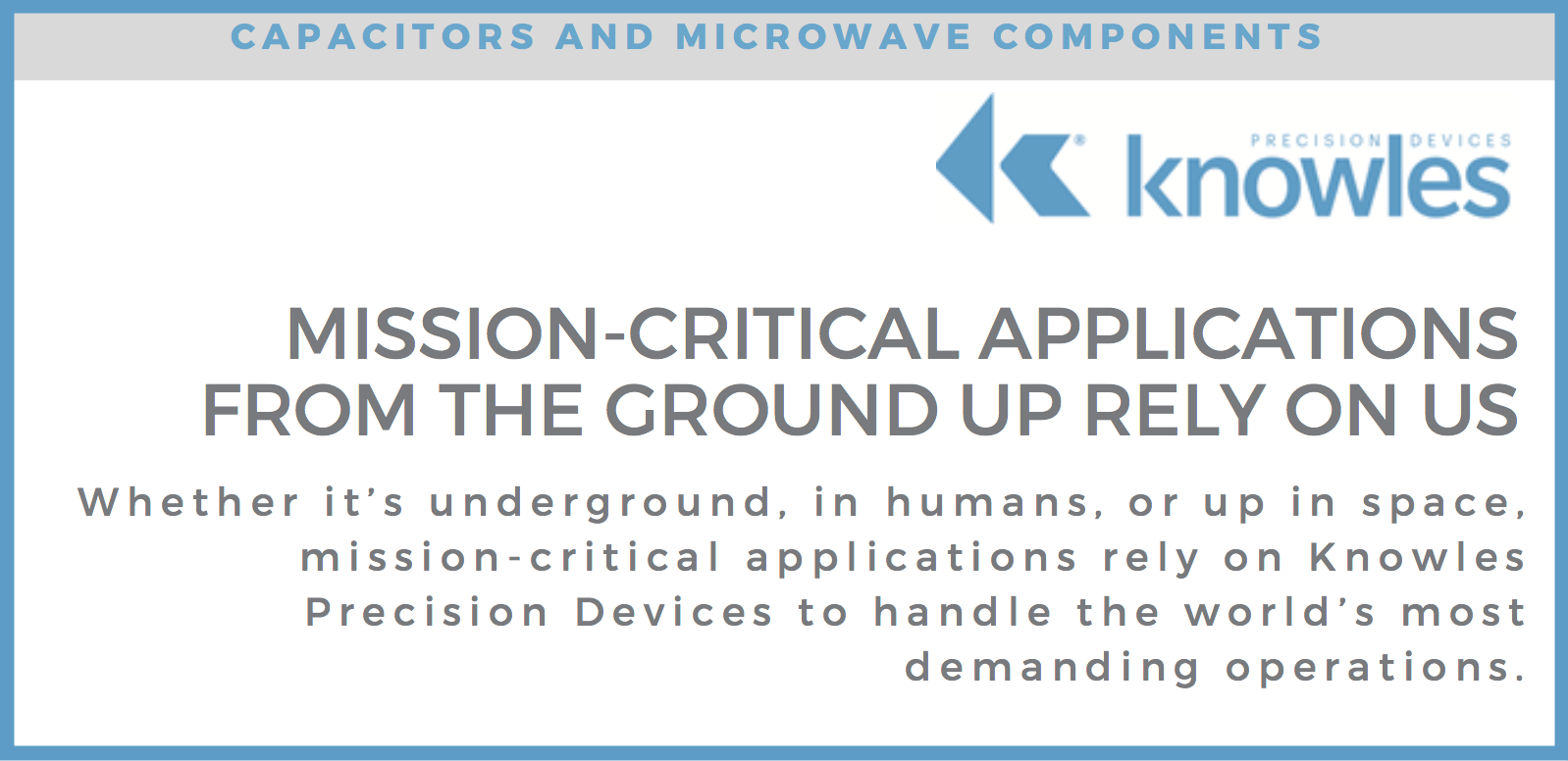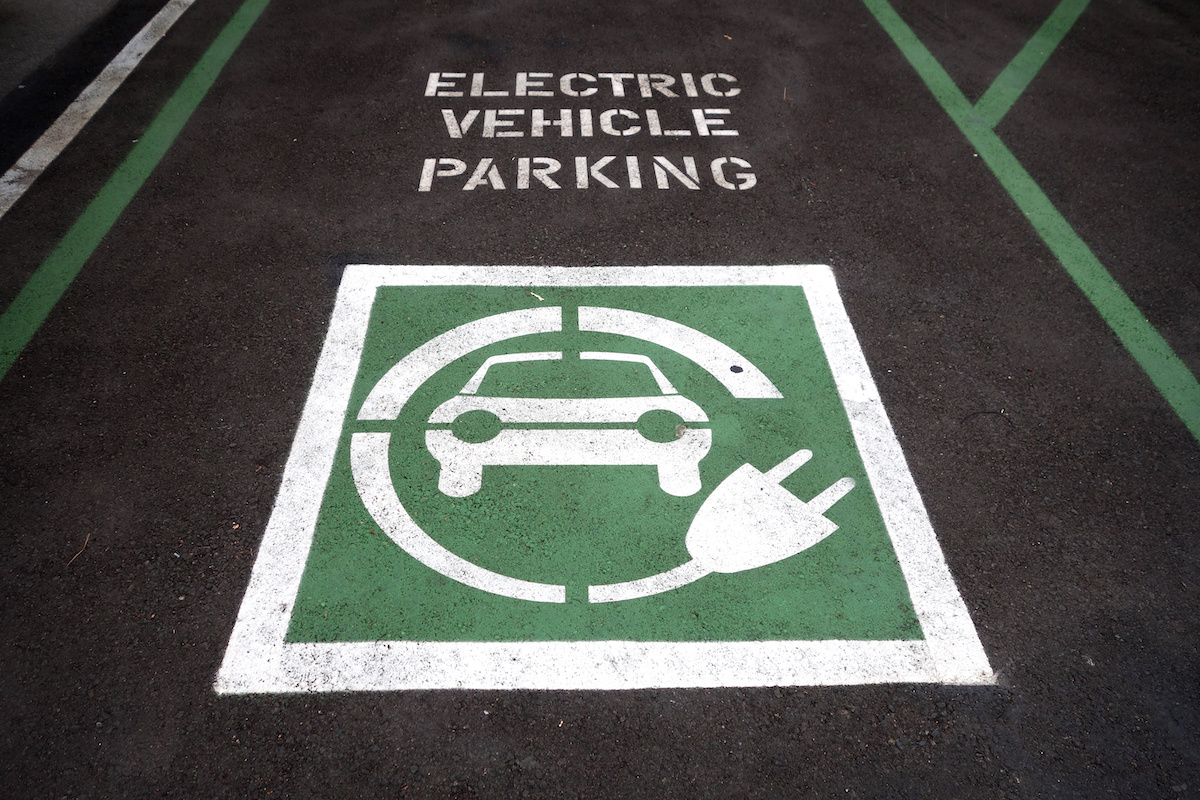In power electronics, rectification is the conversion of alternating current (AC) to direct current (DC). After the AC signal enters a rectifier circuit consisting of power diodes, the resulting raw rectified waveform yields a series of half sine waves with significant ripple. In order to minimize the pulsating DC voltage, a smoothing capacitor is placed in parallel with the load across the rectifier output. As the rectifier voltage rises, the capacitor charges and stores energy like a reservoir. Then when the rectifier voltage falls, the capacitor discharges, greatly reducing the ripple voltage.
Looking Closer at Smoothing Capacitors in Electric Vehicles
Topics: Capacitor, Automotive, Electric Vehicles
Looking Closer at DC Link Capacitors in Electric Vehicles
DC link capacitors are commonly used in power converters as an intermediary buffer between an input source to an output load that have different instantaneous power, voltages, and frequencies. In electric vehicle (EV) applications, DC link capacitors help offset the effects of inductance in inverters, motor controllers, and battery systems. They also serve as filters that protect EV subsystems from voltage spikes, surges, and electromagnetic interference (EMI).
Topics: Capacitor, Automotive, Electric Vehicles
Examining the Latest Electric Vehicle Technology Trends
The market demands and technology trends that impact all aspects of electric vehicle (EV) development are constantly evolving. As trends change, so do the requirements for EV power systems, which impacts the demands placed on the components we supply. Therefore, we feel it is our duty to stay on top of shifting EV trends and share what we are seeing with our customers. This blog looks at three key trends impacting EV development that we are currently monitoring around shifting semiconductor development, in-vehicle system integration as a way to control costs, and the evolution of the EV charging ecosystem.
Topics: Automotive, Electric Vehicles
At Knowles, it is our mission to provide specialty components that meet even the toughest performance and reliability requirements, especially for applications where failure is not an option. But, markets and requirements are constantly changing, which means we must closely monitor the trends impacting all the industries and applications where you might find our components. One area where we are seeing rapid innovation spanning the industries we serve is power electronics. At a high level, the trends driving power electronics innovation are largely centered around methods for providing more energy more efficiently while using smaller components. Below are four key power electronics trends we are currently monitoring and a how we can help you stay on top of each trend with your designs.
Topics: Automotive, Electric Vehicles, High Reliability
Today’s RF Power Applications Require Understanding Equivalent Series Resistance & Q Factor
As a fundamental component of circuit design, equivalent series resistance (ESR) is the measurement of all the non-ideal electrical resistances in series with a capacitor. When current flows through a multilayer ceramic capacitor (MLCC) due to application of alternating voltage, heat is generated in the MLCC due to the losses, specifically ESR. As a result, this self-heating can cause various performance and reliability issues in the circuits of today’s more complex and smaller electronic systems.
Topics: Capacitor, Automotive, Electric Vehicles
Looking Closer at Resonant Capacitors in Electric Vehicles
One of the primary goals in electric vehicles (EVs) is to increase the efficiency of its power conversion devices. The more efficiently power is converted, the further distance the EV can travel on one charge. For example, by reducing losses in a DC-to-DC (or DC/DC) converter, the converter (and overall vehicle) benefits from improved energy efficiency, a more streamlined design, and diminished heating from components.
Topics: Capacitor, Automotive, Electric Vehicles
According to the U.S. Bureau of Transportation Statistics, electric vehicle (EV) sales in the U.S. reached record high monthly volume in March 2021 and continued to rise, nearly doubling in 2021. This marks the sixth consecutive year of growth in electric vehicle (EV) sales and the demand is continuing to grow.
Topics: Automotive, Electric Vehicles
Resonant Capacitors: Your Key to Building Stable and Reliable Wireless EV Charging Technology
As electric vehicle (EV) adoption for both consumer and commercial purposes rapidly grows, so does the need for a more widespread, and faster, charging infrastructure. While we’ve seen vast improvements in charging technology in the last few years, as additional regulations on combustion vehicles are implemented and reliance on EVs increases, further EV charging innovations are needed. Currently, wireless charging is the newest EV charging technology evolving.
Topics: News and Events, Automotive, Electric Vehicles
Practical Innovation at Knowles Precision Devices
Innovating essential high technology systems with demanding specifications is always challenging; making any sort of difference requires extensive resources and deep subject matter knowledge.
But that’s what keeps it interesting.
Topics: 5G, Capacitor, News and Events, RF and Microwave, Automotive, Military and Aerospace, Medical
Looking Closer at Snubber Capacitors in Electric Vehicles
In a previous article about electric vehicles (EV), we talked about using DC link capacitors as an intermediary buffer in power converters. Today’s topic covers another useful power module component – the snubber capacitor. Snubbers are energy-absorbing circuits used to protect electronics from voltage spikes and transients caused by turning a switch from the On to Off state. Opening a switch intrinsically induces a high voltage across the device, and the snubber provides an alternate flow path for the excess energy to be absorbed by the snubber capacitor and dissipated by a resister or other load.
Topics: Capacitor, Automotive, Electric Vehicles

